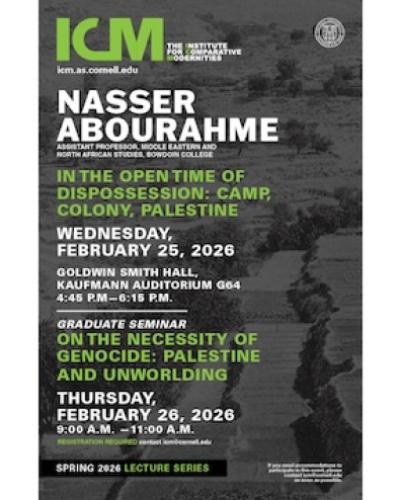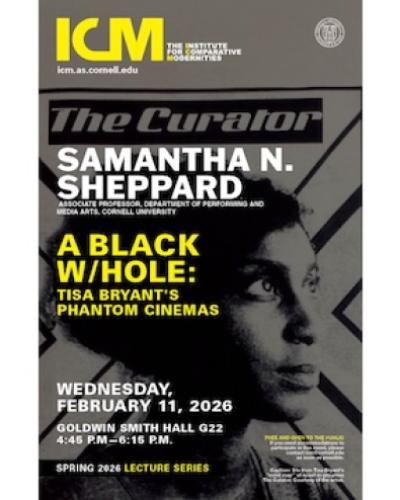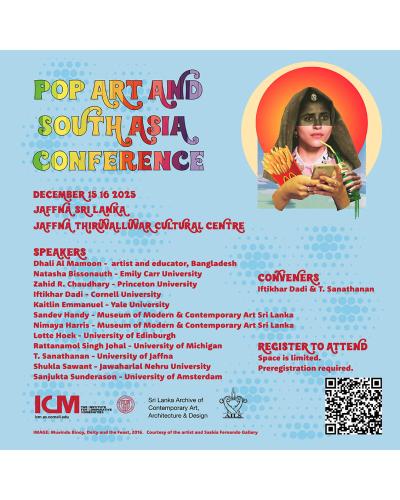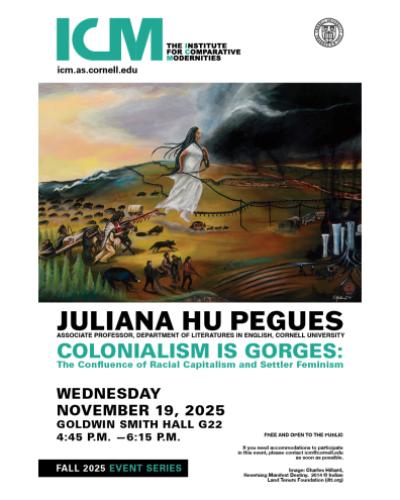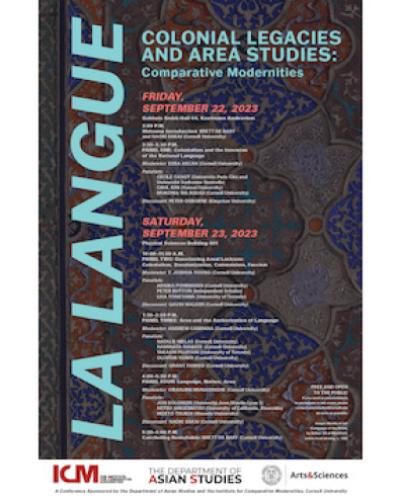La Langue, Colonial Legacies, and Area Studies: Comparative Modernities
A Conference Sponsored by the Department of Asian Studies and the Institute for Comparative Modernities, Cornell University
The conference proposes that what is taken for granted today as national or ethnic language, in the sense of “la langue,” came into existence in the world in modernity, that is, the world as it was gradually organized according to the basic schema of internationality instituted in Europe from the 16th to 19th centuries. Initially this understanding of an “international world” was limited to a special region called Europe, but as the territorial states in Europe moved into non-European regions and conquered their lands, the Eurocentric structure of the international world gained global dominance. Gradually, all the land surface of the earth came to be organized by the bipolarity of Europe (also called “the West” since the end of the 19th century) and the Rest. Thanks to the pioneering work of Cécile Canut (Provincialiser la langue), Jon Solomon (Spectral Translation), and Naoki Sakai (Voices of the Past) we now understand that the notion of la langue is closely associated with the colonial internationality of the modern world. Our attempts to seek national languages everywhere as the sign of indigenous cultural and political autonomy is, in fact, a continuation of the colonial imposition of the Eurocentric norm on colonial populations. Hence, Canut’s appeal for ‘provincializing Europe’ challenges the established modality of knowledge production about the Rest, particularly in area studies.
The conference will therefore consider the formation of national language to be closely affiliated with knowledge production in the modern human and social sciences, on the one hand, and with the creation of the new “imagined community” called “the nation,” on the other. We seek to discuss how broader problems of knowledge production are implicated in the international structure of Eurocentric modernity with a particular emphasis on the intimate connections between the formation of the area and the constitution of la langue.
In-person; online viewing available by registering here
Friday, September 22 | Saturday, September 23, 2023
DAY ONE: Friday, September 22, 2023 | Goldwin Smith Hall 64, Kaufmann Auditorium
3:00 – 3:15 p.m. Welcome Introduction – Brett de Bary and Naoki Sakai
3:30 – 5:30 p.m. PANEL ONE – Colonialism and the Invention of the National Language
Moderator: Esra Akcan (Cornell University)
Panelists:
- Cécile Canut (Université Paris Cité and Université Sorbonne Nouvelle): L’ordre-de-la-langue: The Myth of French as a Universal Language
- Chul Kim (Yonsei University): Construction of Colonial Internationality: Centered on the Production of National Language in Korea
- Mukoma wa Ngugi (Cornell University): African Literary Criticism in Crisis: Politics of Language, Periodization, and Citizenship
Discussant: Peter Osborne (Kingston University)
6:00 – 7:00 p.m. Reception
***
DAY 2 –– Saturday, September 23, 2023 | Physical Sciences Building 401
10:00 – 11:30 a.m. PANEL TWO – Questioning Areal Lexicons: Colonialism, Decolonization, Communism, Fascism
Moderator: T. Joshua Young (Cornell University)
Panelists:
- Arnika Fuhrmann (Cornell University): Southeast Asia as Question: Thinking Region from Bangkok
- Peter Button (Independent Scholar): Settler Democracy, Anti-communism and the Area Studies
- Lisa Yoneyama (University of Toronto): Sensing Violence: On the Use of the Concept of Fascism
Discussant: Gavin Walker (Cornell University)
LUNCH BREAK
1:30 – 3:30 p.m. PANEL THREE – Area and the Authorization of Language
Moderator: Andrew Campana (Cornell University)
Panelists:
- Natalie Melas (Cornell University): Modern Lyric and Racial Time: Langue in and against Empire
- Naminata Diabate (Cornell University): Whither Fieldwork or Homework? Naming a Methodology in Comparative Literature
- Takashi Fujitani (University of Toronto): Is Clint Eastwood a Japanese Director? Some Thoughts on Language and Subtitling in Letters from Iwo Jima
- Olúfẹ́mi Táíwò (Cornell University): No Game is Fun if Only One Side Keeps Winning
Discussant: Grant Farred (Cornell University)
COFFEE BREAK
4:00 – 5:30 p.m. PANEL FOUR – Language, Nation, Area
Moderator: Viranjini Munasinghe (Cornell University)
Panelists:
- Jon Solomon (Université Jean Moulin Lyon 3): The Ideological Inscription of Capitalist Hegemony in Language: On the Unity of Language and the Mode of Address
- Setsu Shigematsu (University of California, Riverside): Yellow Skin, White Masks, and the Force of AntiBlackness
- Hideto Tsuboi (Waseda University): Resist Fluency
Discussant: Naoki Sakai (Cornell University)
5:30 – 6:00 p.m. Concluding Roundtable with Brett de Bary (Cornell University)

